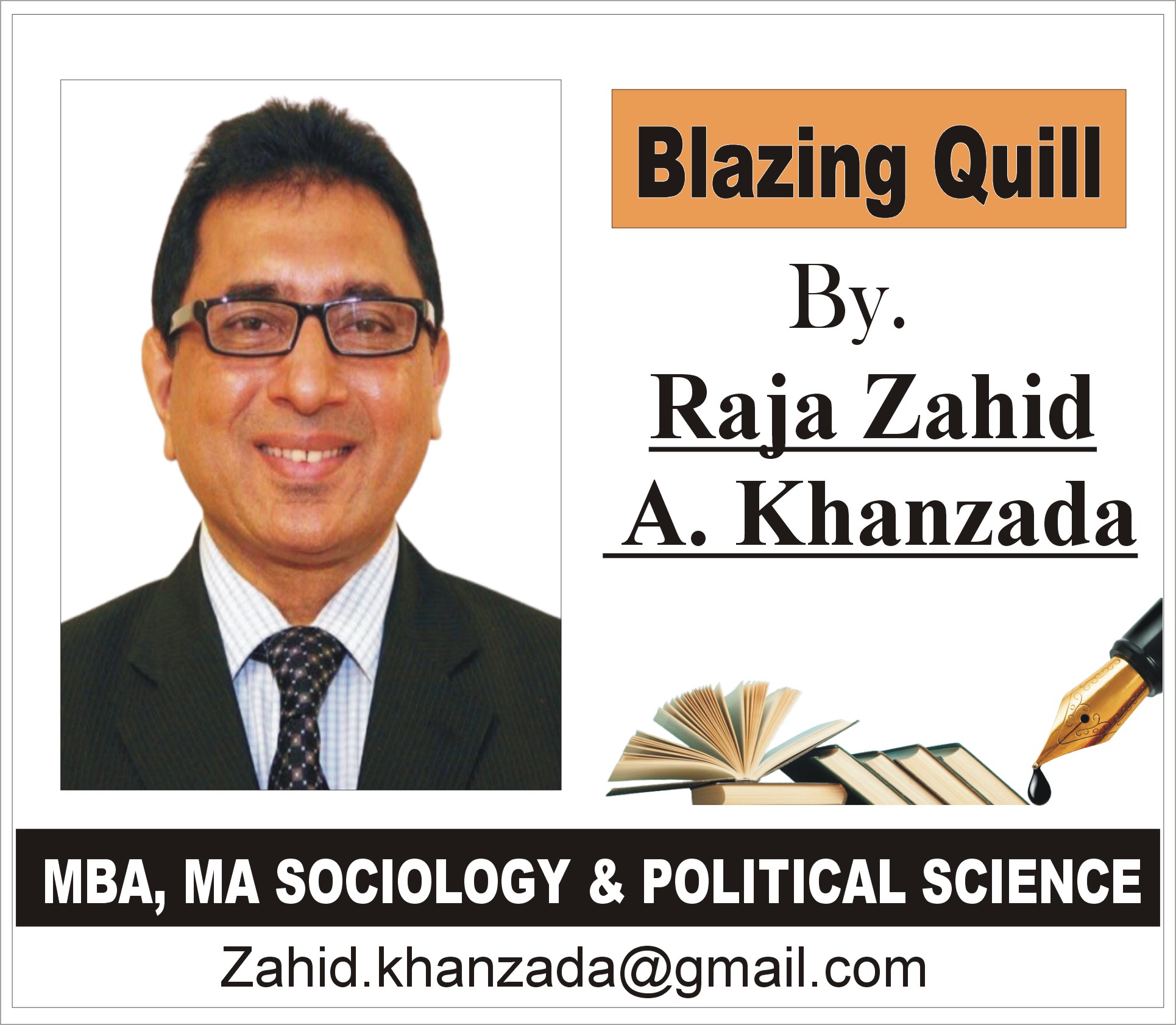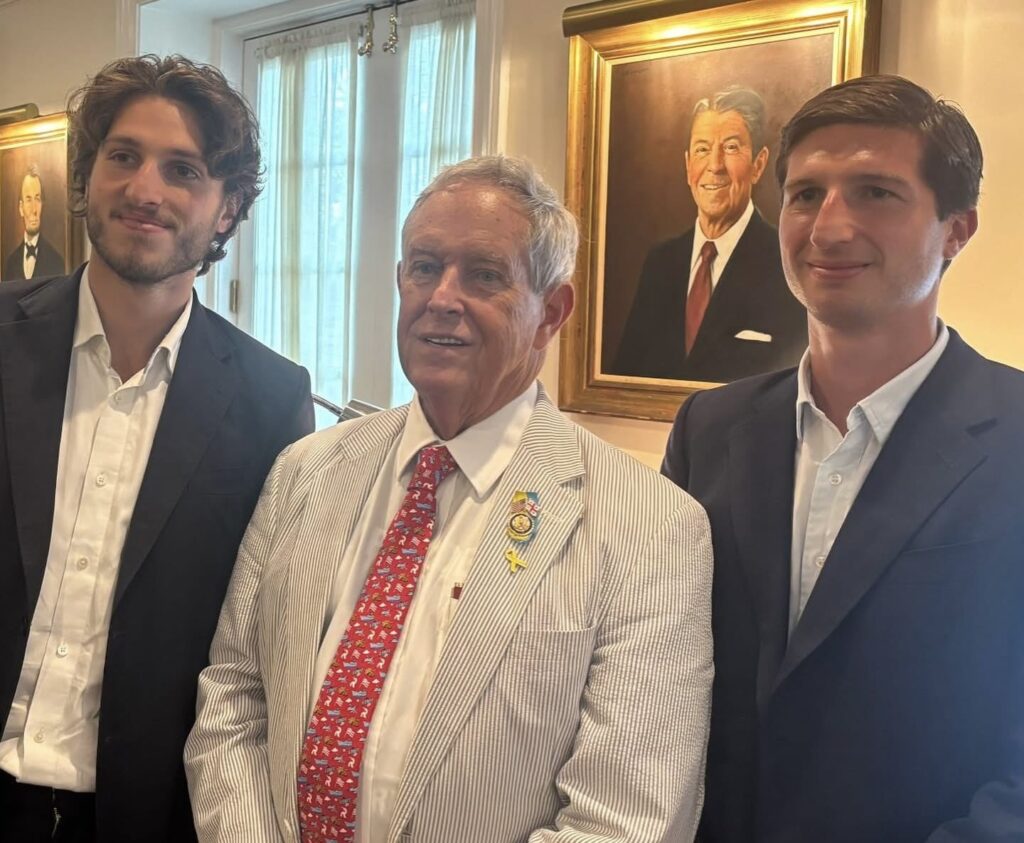Imran Khan’s Sons, Trump’s Intervention, and the Field Marshal’s Silence. Has a Deal Already Been Struck?
By Raja Zahid Akhtar Khanzada
One photograph, two familiar faces, and countless questions. When Imran Khan’s sons, Suleman Khan and Qasim Khan, were seen in images meeting U.S. Congress members and Senators in the illuminated corridors of Washington, it sent ripples through Pakistan’s political landscape. These weren’t just routine photo ops , they felt like symbolic glimpses of potential behind-the-scenes deals. While some claimed these meetings were purely humanitarian and non-political, others insisted they were the result of personal lobbying. There were also those who saw these images as deliberate moves disrupting PTI’s unofficial political strategy.
Yet beneath these photos lies a deeper narrative, that of a father imprisoned in solitary confinement, a leader who was once the embodiment of hope for his nation, and a legal case that has transcended into a global ideological conflict. It was claimed that the visit was apolitical, merely a humanitarian effort by Khan’s sons to draw attention to their father’s rights. But questions naturally followed: whose efforts were these really? Why were PTI leaders in the U.S. appearing alongside the brothers in these meetings? And what message were these images meant to convey?
It is in moments like these that the face of Pakistani politics begins to shift, and the shadows of American influence grow more defined.
At a time when PTI itself is divided between a pro-establishment faction and an anti-establishment camp, the true nature of these meetings remains unclear. Are Khan’s sons simply acting on their own? Or is a grander chessboard quietly being set in motion behind the curtains?
Then came the revelation that shocked political observers: American journalist Ryan Grim’s report in Drop Site News disclosed that former President Donald Trump, during a White House meeting in June 2025, directly urged Pakistan’s de facto ruler, Field Marshal Asim Munir, to “resolve” the issue of Imran Khan. This wasn’t formal diplomatic language—it was personal, assertive, and deliberate.
“I have Pakistani friends who helped me win the election. You need to resolve this issue.”
These seemingly simple words carried decades’ worth of relationships, political debts, and campaign promises. Trump emphasized that Imran Khan deserved justice, citing overwhelming support from Pakistani-Americans, many of whom were also Trump’s voters and vocal supporters of Khan’s ideology.
But the question now isn’t what Trump said, it’s what happened afterward.
On the surface, nothing changed. Imran Khan remains in solitary confinement. His sons have been denied visitation. His sister is barred from meeting him. And to make matters worse, 27 of Pakistan’s most influential political YouTube channels were blocked and only selectively restored, in an effort to silence any alternative narrative about Khan.
But in politics, appearances can be deceiving. What’s shown to the public often masks what’s unfolding behind the scenes. Since the June meeting, Trump has gone quiet. Yet, subtle shifts are evident. Pakistan’s judiciary has suddenly sprung into action. Verdicts are being handed down. Shah Mahmood Qureshi has been granted bail. Others have been sentenced. Could this be the prelude to a “formula deal”?
Sources suggest Khan has firmly rejected any direct backroom arrangement unless false cases against him and his supporters are legally dropped. If true, the recent flurry of judicial activity could point toward the quiet implementation of this very condition.
While we may not yet know the full script, there is increasing evidence that something has indeed been agreed upon. The arrival of Khan’s sons in the U.S., their strategic “non-political” meetings framed around human rights, and Trump’s sudden interest all echo the whispers of a silent pact. But these whispers haven’t reached the ears of PTI’s grassroots members or the general public. Most remain unaware of the political realignment underway behind closed doors.
This is the critical juncture where the camel of Pakistani politics will finally choose a side to sit, a direction yet undetermined. PTI’s internal narrative battle continues. On one side, social media activists and YouTubers defiantly voice anti-establishment rhetoric. On the other, pragmatists within the party seek reconciliation. Senate elections have hinted at consensus. In Khyber Pakhtunkhwa, PTI leaders quietly cooperated with the establishment-backed government. Figures like Salman Akram Raja, respected by both factions, are now symbols of a new internal balance emerging within PTI.
And yet, the price of this equilibrium remains unknown.
Trump, who stunned the world by abruptly announcing a ceasefire during the recent Pakistan-India border tensions, and who has now been symbolically nominated for the Nobel Peace Prize by Pakistan has re-emerged as a power broker in Pakistani politics. He may hold no official office, but his influence, as always, is undeniable.
Trump, once a close ally of Imran Khan during his first term, now returns not just as a friend, but as a mediator, a guarantor, and perhaps even a pressure point. The arrival of Khan’s sons, their strategic photo ops, and Trump’s endorsement, these are not random coincidences. They form a carefully constructed narrative that hints at a possible grand bargain in the making.
Now all eyes are on the outcomes. Will Imran Khan be granted relief? Are these meetings the opening act of a new political deal? Or is it all smoke and mirrors, while the real fire rages elsewhere?
Time will tell. But in politics, when silence resonates, when photographs speak, and when meetings shift the trajectory of history, one truth remains: the most successful political moves are often the ones hidden from sight.
And perhaps, this is Imran Khan’s next move.
Perhaps, amid this strategic silence, these calculated interactions, and seemingly apolitical engagements, a quiet deal has already been brokered one that may well define the next chapter of Pakistan’s political history.
And maybe, at this turning point in time, Imran Khan’s most powerful advocate is neither a lawyer nor a party loyalist, but a former U.S. President whose words echo through the corridors of power, and whose silence decides fates.




